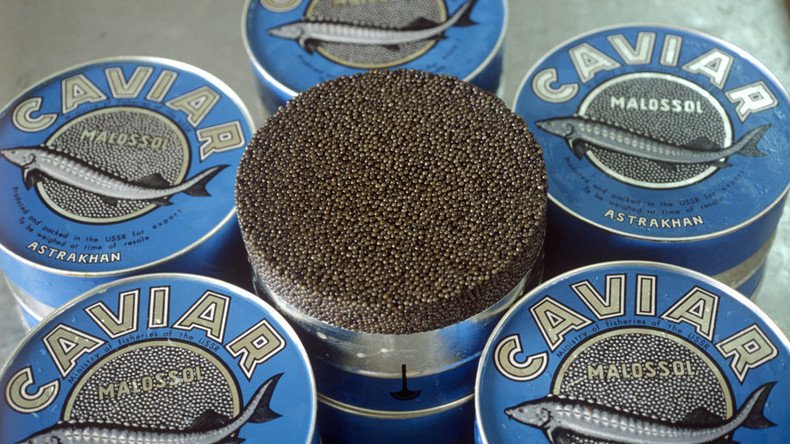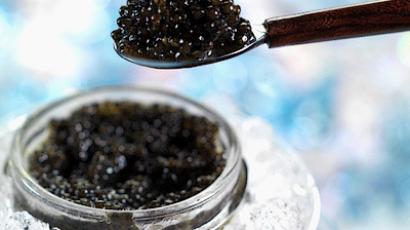Huge jump in Russian black caviar exports

The export of Russian black caviar has tripled in the first eleven months of last year compared with the same period of 2014, the Russian Ministry of Agriculture reported on Friday.
Every year Russia produces about 50 tons of black caviar, and exported 4.71 tons last year. Caviar imports fell from 8.67 tons in 2014 to just 3.5 tons.
According to the ministry, the improvement in exports is mainly due to sturgeon farming as well as favorable market conditions due to the exchange rate.
With the collapse of the Soviet Union, Russia's caviar business became dominated by poachers. Wide-spread poaching in the Caspian Sea depleted the sturgeon population. Statistics from the World Wildlife Fund Russia showed that in 2010 the fish population was just 2.5 percent of what it had been in the late 1980s.
Russia imposed a blanket ban on the export of black caviar in 2002, and later on commercial sturgeon fishing. Since then black caviar have been produced by state fish farms where sturgeon are reared. The only caviar available for purchase legally today is from fish raised on fish farms.
READ MORE: Blini with caviar from Russia’s Teremok rated a global fast food delight
Caviar Coffin: Police pull over speeding hearse; find 500kg of roe https://t.co/Lal5lPqncdpic.twitter.com/rvDL8k84pd
— RT (@RT_com) October 28, 2015
In February 2011, the caviar export ban was lifted.
Sturgeon fishing is allowed in Russia only for scientific and reproduction purposes.













